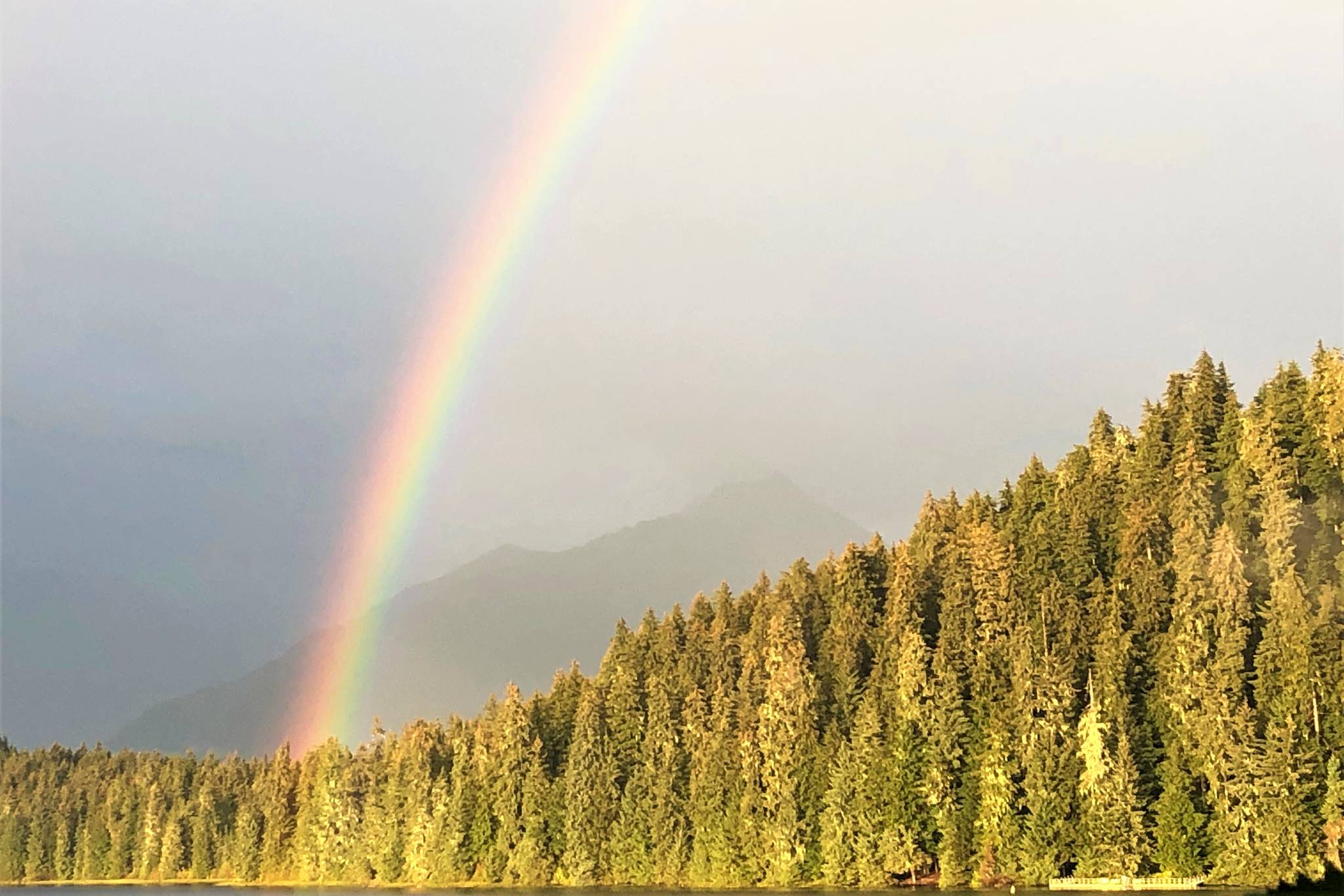Summary
Hayhoe finishes by telling the crowd there are things they can do, and goes through a presentation of various organizations that can and should be supported to have an affect on climate change. She says that Christians, motivated by love, they have a responsibility to protect God’s creation and that means both people and the natural environment.
8 p.m.
She says that across the political spectrum, the main response to the discussion of climate change is fear. Fear of environmental devastation or fear of loss of benefits of fossil fuels.
But God has not given us the spirit of fear, she says.
Climate change disproportionately affects the most vulnerable among us, the very people we as Christians are told to help, she says.
7:52 p.m.
Why do we care about climate change, she asks, because it affects people and God told us to love each other as we love ourselves.
As the world warms, she says, as more and more heat and energy build up in the Earth’s systems we are seeing more and more natural disasters and extreme weather events.
It’s no longer climate change it’s “climate changed.”
Alaska’s dice are being loaded against it, she says, following an analogy she gave earlier about extreme weather events being like rolling a “double six” with two dice.
When you are living on two dollars a day, you are the most vulnerable to the effects of climate change.
“When we get a drought in Texas, it causes $8 billion in loss,” she says, when the same thing happens in a country like Syria where there’s a corrupt and unstable system.
Did climate change create the Syrian refugee crisis? No. Did climate change exacerbate it? Yes?
7:45 p.m.
An early Gnostic heresy, she says, was the idea that the physical didn’t matter.
But, she cites 1 John 1:1 which signifies the importance of the physical.
She says that Genesis says that tells us that we were created in God’s image, but we don’t talk about why.
Why is so that we could have dominion over all living things.
But the Hebrew word that means “dominion,” it does not mean domination. It means to exercise skilled mastery with respect to control over something
She cites Psalm 72 as another example of Biblical examples of caring for, rather than exploiting the Earth.
7:37 p.m.
Warming after the last ice age peaked about 6,000 years ago, she says, and scientists had predicted another ice age in roughly 1,500 years.
But human activity, deforestation and animal grazing for example, had balanced the effects of the previous ice age by the beginning of the Industrial Revolution.
She shows a website that she has worked on called globalweirdingseries.com, and the most watched episode from this site is called “What does the Bible say about climate change?”
7:32 p.m.
“We’ve seen it with our own eyes,” she says, citing the effects of climate change. She uses the example of melting permafrost here in Alaska.
She says that there are over 26,500 different indicators of a warming planet.
She is giving these examples as responses to questions she often gets from people who are skeptical of climate change.
7:22 p.m.
“How can we call ourselves ‘pro-life’?” when there’s so much damage being done to human and animal life.
She gives examples of environmental degradation and the ill-effects pollution has had on people’s health.
Hayhoe gives a brief history of fossil fuel use that began during the Industrial Revolution. She says that the technologies that were allowed by fossil fuels, electricity for example, have undeniably done wonders for humankind but the damage they cause has surpassed their usefulness.
7:15 p.m.
“The reason I’m a climate scientist is because I’m a Christian,” she says.
People often asks her what comes first when she tells them she’s both a scientist and a Christian.
She shows a picture of the Earth taken at night, when the lights from human activity can be clearly seen. She points out there is a major collection of lights in North Dakota, but there’s no large metropolitan areas there. The lights are from hydraulic-fracturing, or fracking, a kind of resource extraction that is controversial for its effects on the environment.
7:10 p.m.
Adrian Slater, an elder at Chapel by the Lake, introduces Dr. Hayhoe.
Climate change can be difficult he says, because much of its effects are abstract.
“It’s a very complex thing. When it comes down to it, it’s not just a scientific problem. It’s a people problem,” he says.
How do we show ourselves to be good stewards of God’s creation, he asks the audience. He says that Hayhoe can help answer that question.
7:05 p.m.
Katherine Hayhoe is an atmospheric scientist whose work has focused on the effect of climate change. In addition to being a climate scientist, Hayhoe is an evangelical Christian who gives talks trying to bring those two worlds together.
“In the United States, we have been told, deliberately that if we are Christian, we can’t get on board with this whole climate change thing,” she previously told the Empire in an interview. “That perspective is totally false. Throughout the Bible, it tells us there are many for us to do that God has prepared for us in advance, and all of those have to do with loving and caring for each other and every living thing.”
She is giving a talk on “Climate Change and Christian Faith” at Chapel by the Lake.
• Contact reporter Peter Segall at 523-2228 or psegall@juneauempire.com.

